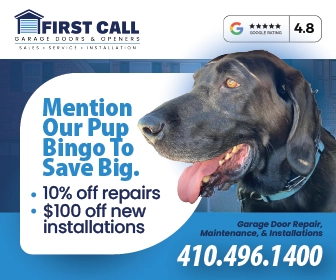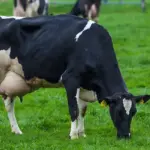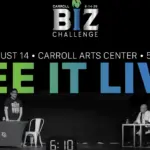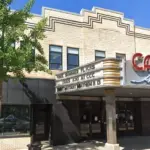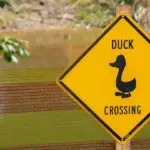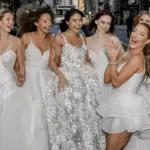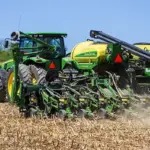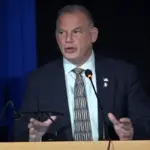by Kym Byrnes, photography by Walter P. Calahan
Judy Morley knows she has big shoes to fill. In June she took the reins of the Carroll Arts Council in Westminster from Sandy Oxx, who built the organization into the gem it is today over the past 21 years. Morley said she is a patron of the arts, but doesn’t necessarily consider herself artsy. A lifelong resident of Colorado, this spring Morley moved to Gettysburg, Pa., after accepting the council position.
Experience and education have prepared her for the job, including an extensive background in executive leadership, organizational development and marketing in both the commercial and nonprofit sectors. She served as the chairwoman of the Chamber of Commerce in Evergreen, Colo., and has a keen understanding of community partnerships. She is a faculty member of the Lincoln Leadership Institute in Gettysburg as well as a business owner: She and her husband own several businesses in Colorado, including a brick-oven pizza food truck.
What interested you in this position here in Carroll County?
My husband and I had been looking to make a move to the East Coast for family reasons — we have a daughter in Philadelphia and another who is a freshman in college on Staten Island. We have businesses in Colorado but our whole social and family life had moved away. I was in Gettysburg on a work project and decided to meet a friend in Westminster for dinner. I parked in front of the Arts Council and saw an announcement for the executive director position. I had been looking for an executive director position in Colorado for two years with no success. Everything in this job description spoke to me. And it looked like fun.
How has the transition been, in terms of geography as well as the work you’re doing?
Colorado gets 14 inches of rain a year — we got that much in a weekend here. So the geography has been a big change. I was prepared to have less sun — Colorado has 300 days of sun a year, Carroll County has 195, so that has been hard. But I was so ready to be somewhere where things grow, even when it’s raining. I love driving around and seeing green and trees and lushness.
I have to give a shout-out to the [Carroll Arts Council] staff who have art backgrounds and know the local art scene. My husband and I were arts patrons in Colorado, but it’s important to know the local scene, so the staff is key. My experience is more in leadership and organizational development. I believe the [board of directors] was looking for someone who could build a future for the organization, not necessarily someone with a background in the arts.
Has anything about this position or the county surprised you?
I was initially surprised at what a high-profile position this is. I got a sense of that the day I closed on my house in Gettysburg. The woman I bought the house from worked at Carroll Community College and asked what brought us to the area, when I told her, she was amazed that I was the person taking the job. Then I got calls from local media for interviews. I was surprised at how integral to the community this role is, which I guess now makes sense, since so much of my interview was based on liaisoning with community and experience in public service.
What is your favorite piece of art or form of art?
I really love folk art, I like barns, I love performing arts. I am probably more into the performing arts end, although I’m fascinated by the artists Susan Williamson brings in to the gallery.
What do you believe the role of the arts center is in the broader community?
Our mission is to is to enrich our community, both culturally and economically. I like our mission. We are a community generator — we have classes and kids shows, which is a community in and of itself, and not only kids, but parents get involved, too. And we’ve evolved into this wonderful economic generator for the community. The Peep Show brings in between 18,000-22,000 people.
This organization really evolved under Sandy’s brilliant leadership. So now the work ahead of us is to figure out where we want to be in five years, 10 years. What role do we want to play in the community down the road? Right now, we fill the role very well, the question is how do we do that in the next five years? It’s really important for people to know that we’re not going to suddenly change everything — we’re not getting rid of things like the Peep Show or Festival of Wreaths. These are our signature events.
What is your vision for the future of the Arts Council?
For 21 years, Sandy worked to establish [the Arts Council] in the community and make it an important community organization, but we’re kind of at capacity. We have this chronic conversation where we keep booking stuff and then we only have eight staff, only four full-time, so how do we keep up? We have 146 events a year. How do you have something every other day with a staff of seven or eight? What does growth look like when you’re at capacity? I don’t see a reason to change anything, we’re doing a great job, but we have to figure out what growth looks like for us — we can’t stagnate.
So we’re going to experiment with a little innovation, and strategic planning with our board and staff is really crucial to that.
What are challenges of this position?
One is we’re at capacity — how do we staff a building and events and special events? We have a professional staff that is supposed to be doing these professional things that are conducive to the 9-5 work environment and then they are being asked to work all day Sunday selling tickets for something. How do we keep growing when we’re there, at that level of busyness?
Another challenge, and we’re working on it, is how do we reach beyond the walls of this building. I think we’ve gotten people to this building, but we’re at capacity, so how do we take the Arts Council and move it out of the arts center? Susan [Williamson] has created something called Art Soup — on Tuesdays they go to a local soup kitchen and while people are eating, she offers tools and encouragement to be creative and she does art projects with them. Those are the kinds of outreach activities we’d like to do more of.
Why is it important for a community to have a place like this?
Economically, we bring a lot of people to Carroll County — people from all over the region come to see unique events and while they’re here they eat and shop. Culturally it’s important for the community, I think we all know towns that don’t have culture and they can seem really backwards and very small. Culture brings a level of community to a town. We’re not the Hippodrome or Kennedy Center, we don’t want to be, we’re a county arts council where local folks go to be involved in the arts and participate in the arts.
This is an important, well-run organization whose next steps are only to get better; nothing will dramatically change. Kudos to Sandy for what she accomplished here — for 21 years she was the driving force here and a lot of that was the force of her personality. We’re at a point where more formal systems and processes have to be put in place, and I see that as my role — to shepherd us into that next phase.



